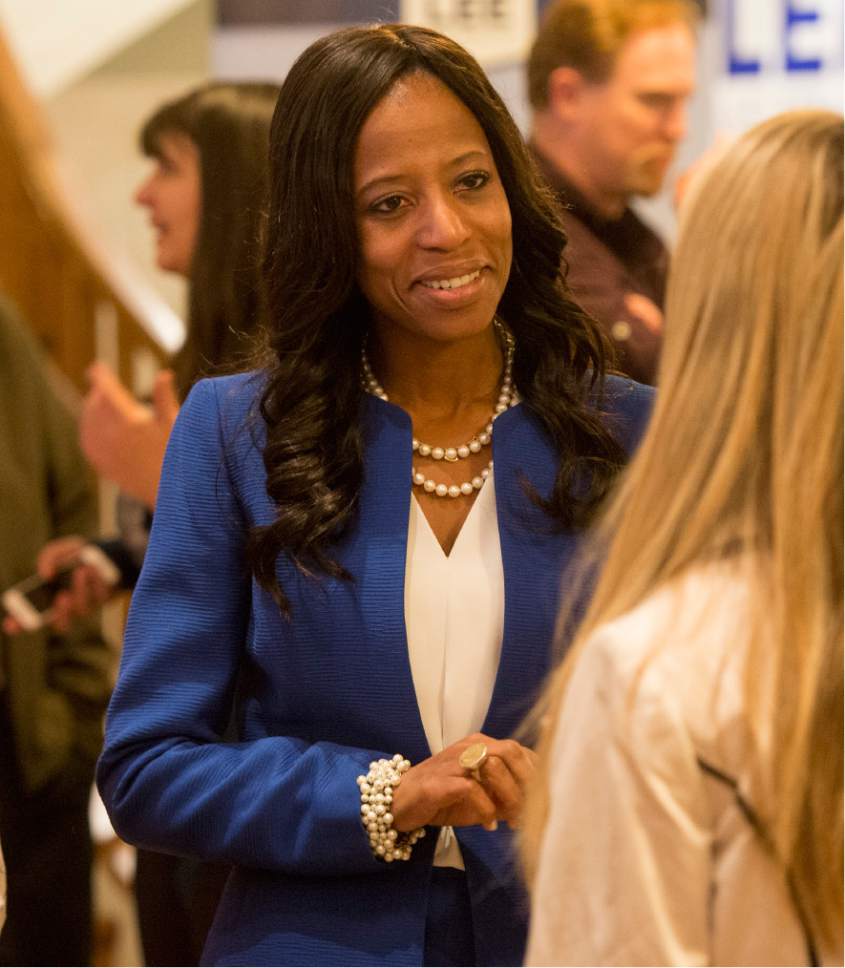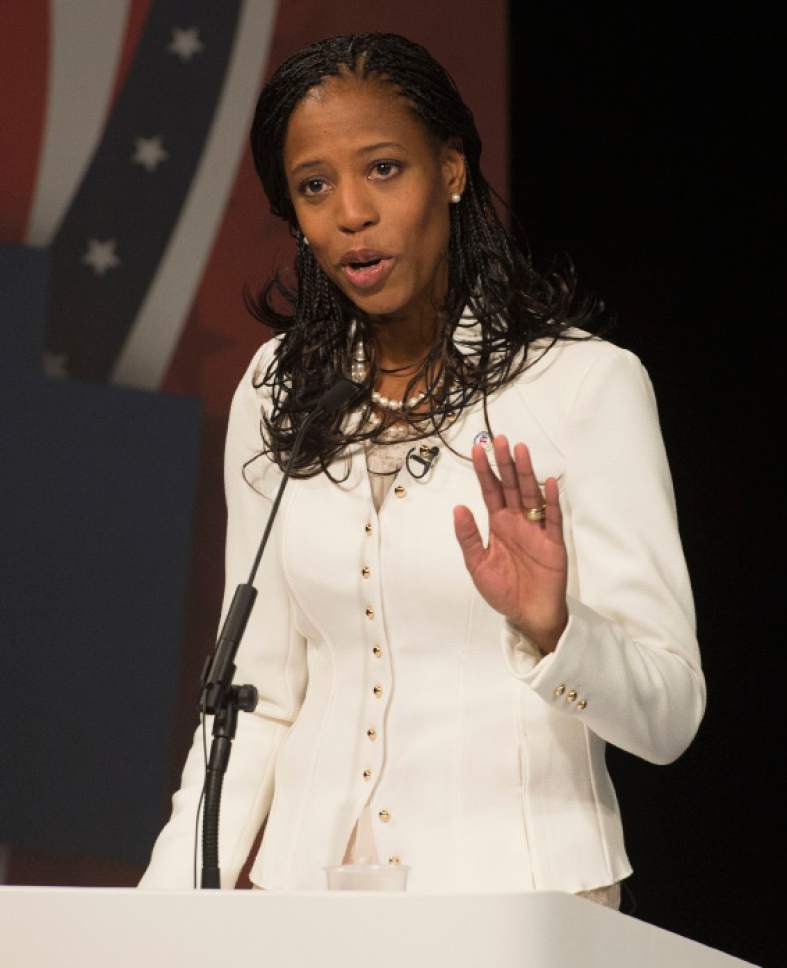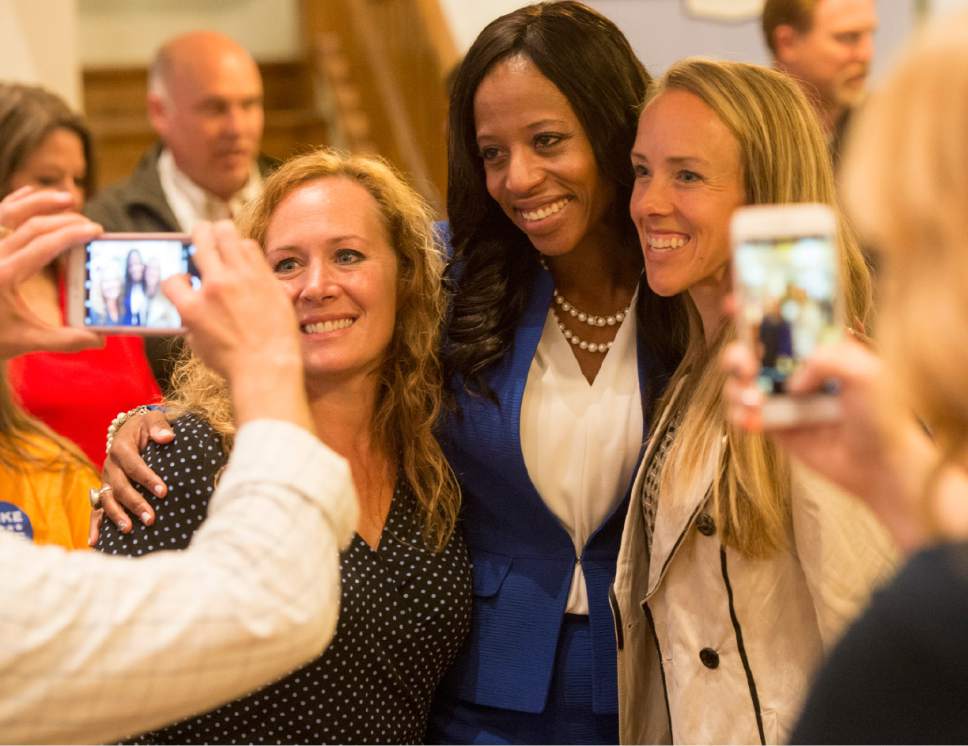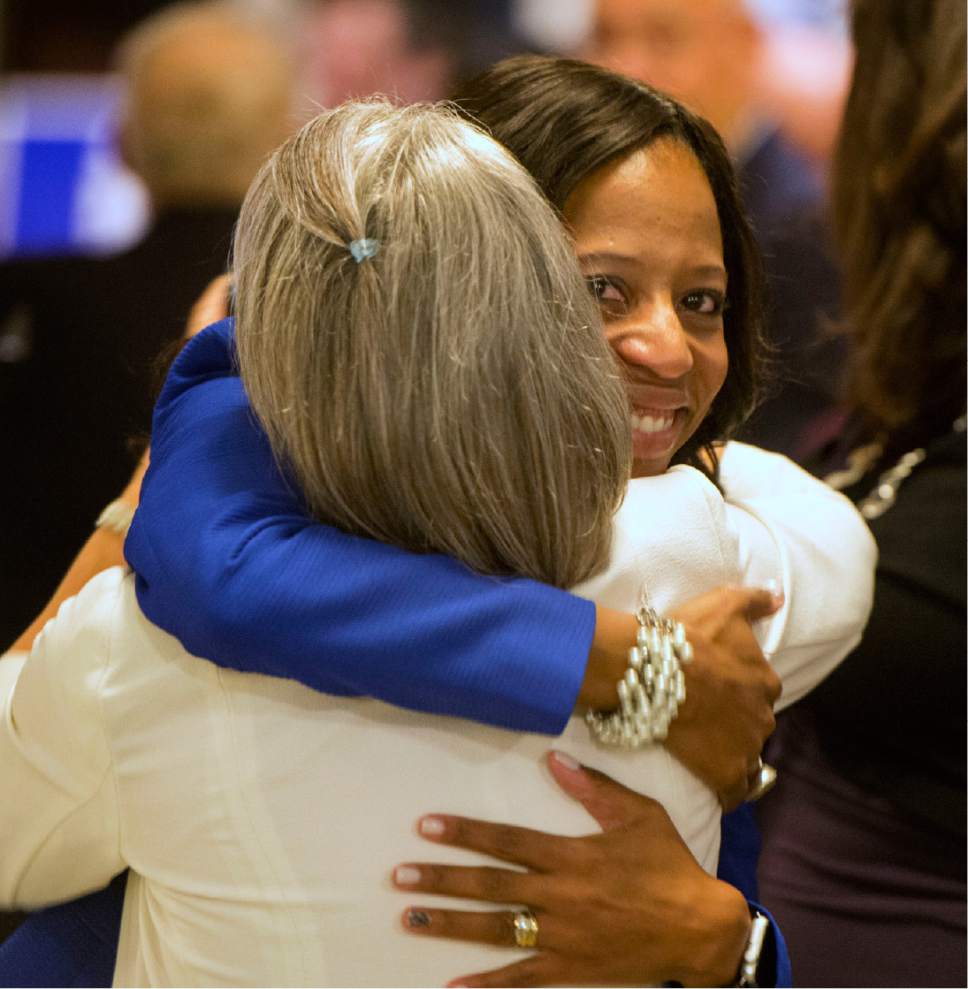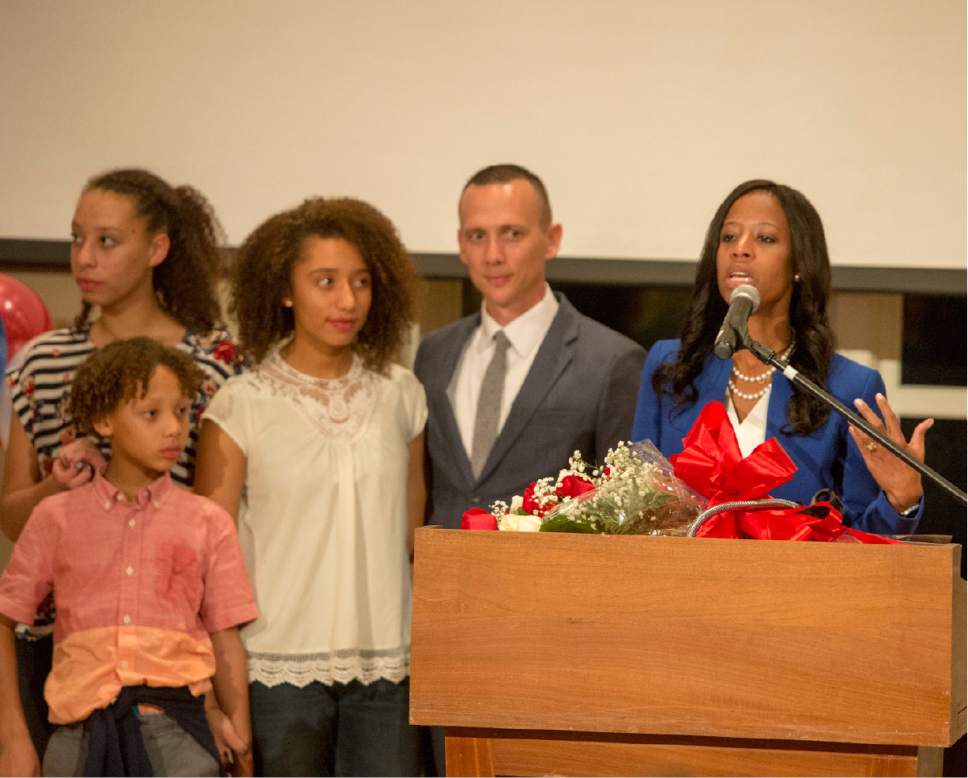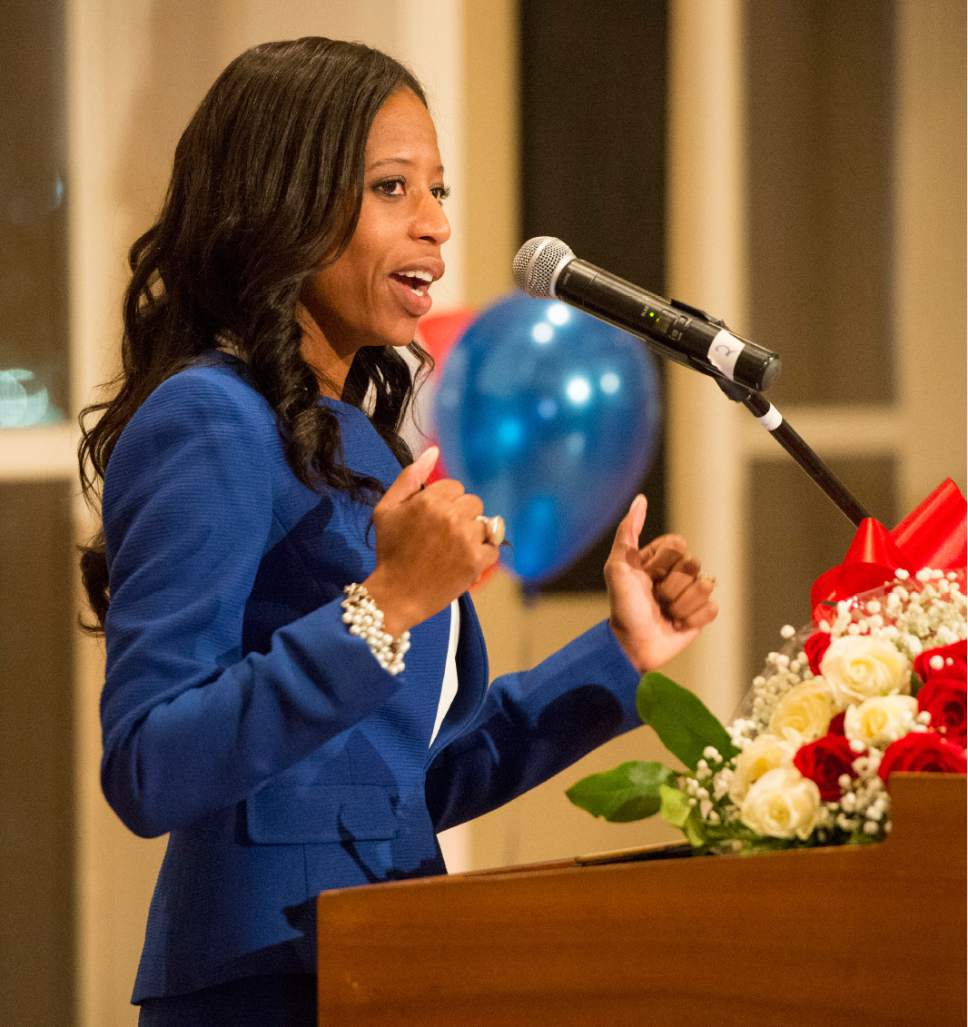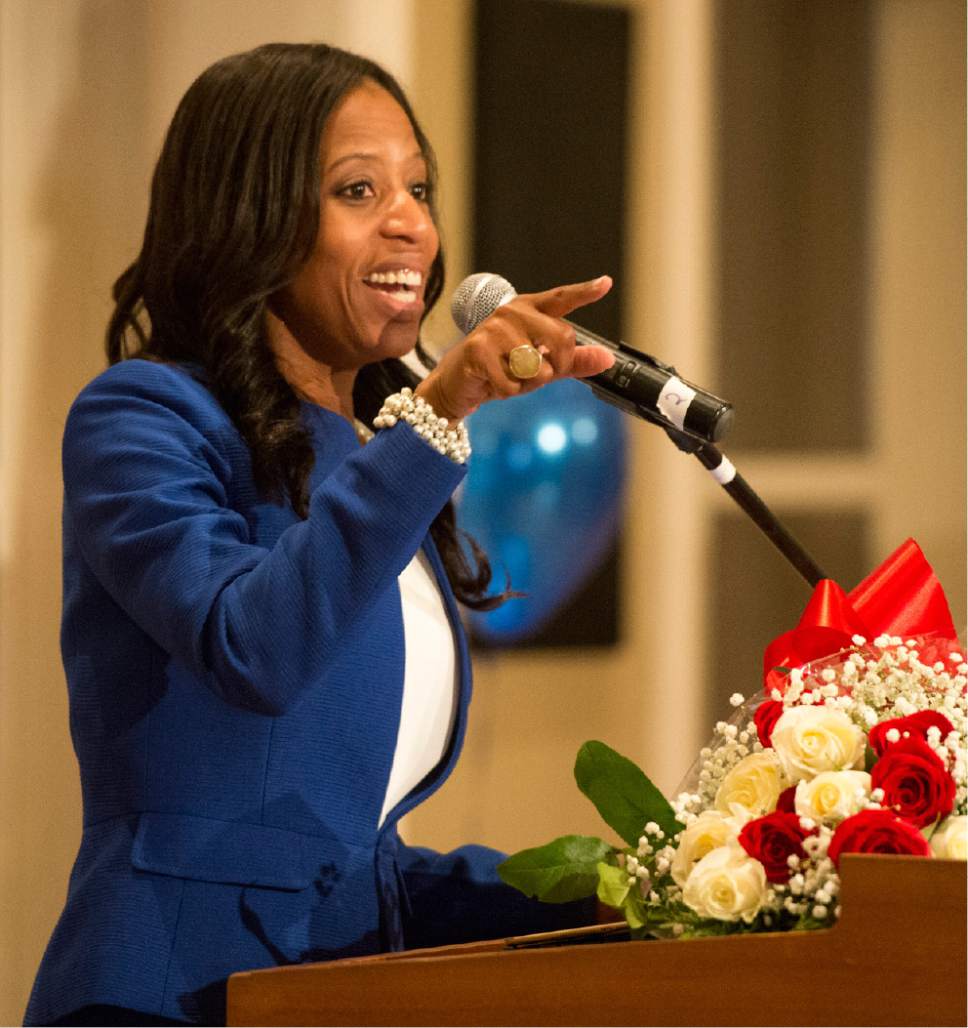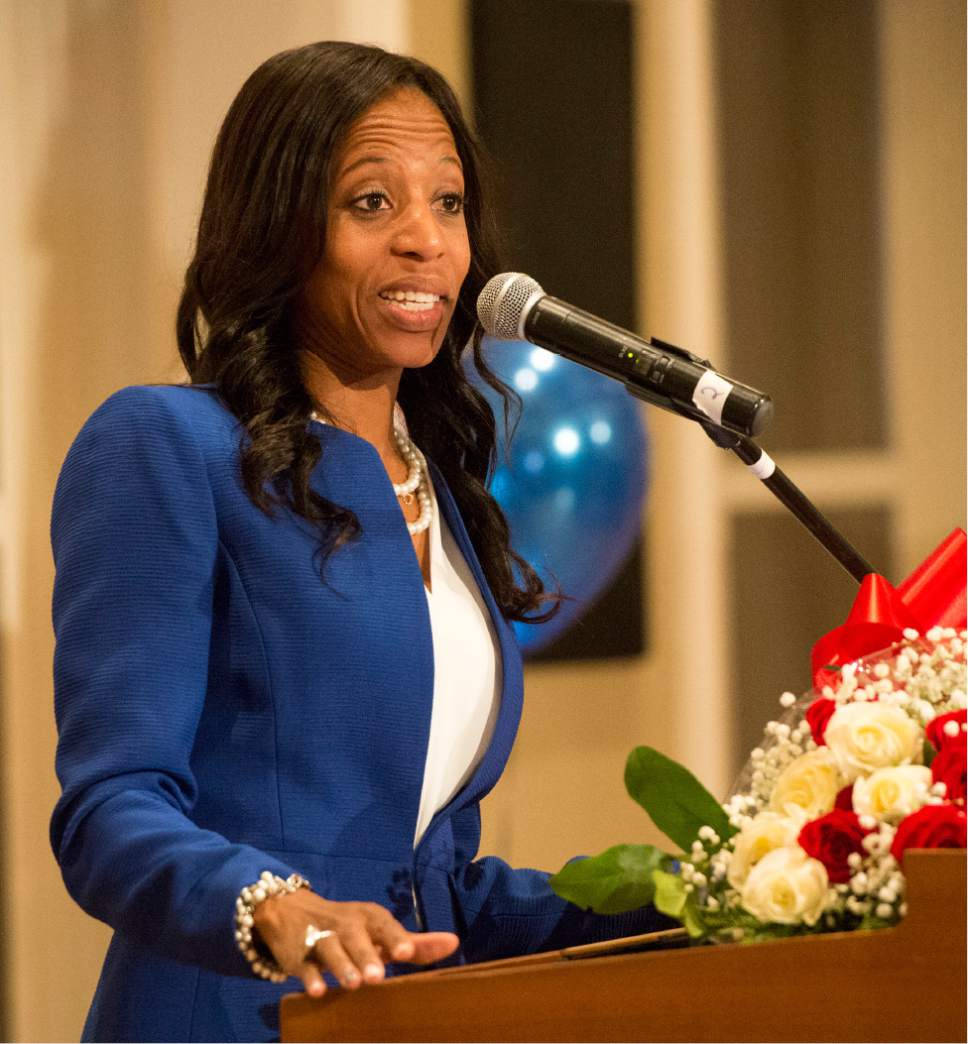This is an archived article that was published on sltrib.com in 2016, and information in the article may be outdated. It is provided only for personal research purposes and may not be reprinted.
In the big-dollar 4th District rematch, Rep. Mia Love defeated Democrat Doug Owens. She held a 10 percentage point lead, 52.7 percent to 42.6 percent, in early results early Wednesday, prompting Owens to concede and giving her a claim for her second term.
That tally doesn't include all of the votes from those who stood in long lines Tuesday or who handed in their mail-in ballots in person. It is unclear how many ballots are outstanding, though it is likely not enough to change the outcome. The Associated Press called the race, and Love gave a victory speech at 1 a.m. Wednesday.
"I have never been more proud of this state and the United States of America than I am today," she said. "I have a newfound faith and a newfound encouragement in the people of this country."
Love has said she didn't vote for Donald Trump, who won the White House. "When I said no matter what happens in the White House, we need a check and balance in the House, Utahns showed up," she said.
Owens had a small lead in Salt Lake County votes, but Love overwhelmed him in Utah County, where she lives, and in smaller portions of Juab and Sanpete counties.
Owens congratulated his opponent and thanked his backers for their "unending support, generosity and hard work throughout this race."
"Although we lost this race, we must remain engaged in our politics, or we risk losing our voice," Owens said in a news release. "Now, more than ever, we must continue to fight for Utah's future."
In 2014, Love beat Owens by about 5 percentage points to claim the seat previously held by Rep. Jim Matheson, D-Utah. She became the first black Republican woman elected to Congress and, in large part because of that historic first, is well-known in Washington and has built a national fundraising network.
The 4th District race garnered national attention after the Democratic Congressional Campaign Committee backed Owens, which it didn't do in 2014. Also, an early Salt Lake Tribune-Hinckley Institute poll showed the challenger with a small lead over Love, which prompted political handicappers to call the race a toss-up.
Since then, two outside groups — one connected to House Republicans and the other tied to House Democrats — have spent $350,000 each on ads. That's on top of the nearly $5 million Love raised for the campaign and the $2 million collected by Owens. No campaign in Utah had more TV ads, many of them negative.
Love argued she has represented her largely suburban district well, fighting against Planned Parenthood and to help veterans, as she learned about the markets through her role on the House Financial Services Committee. She's criticized Owens for being liberal, having donated to President Barack Obama and Hillary Clinton in the lead-up to the 2008 election. The Love team also hit Owens for being one of the lawyers who sued to block construction of the Legacy Parkway.
Owens pitched himself as a centrist focused exclusively on Utah, willing to break with his own party when necessary. He highlighted his Mormon roots and rural ties, while his campaign claimed Love is distracted by the benefits of office. Owens hit her for using taxpayer money to send mailers to promote herself and for reimbursing the government for a flight she took from Utah to D.C. to attend the White House Correspondents' Dinner.
Those mailers are legal and used by many House members, though Love spent $275,000 on them, far more than Utah's three other House members combined.
Love and Owens disagreed on raising the minimum wage (she didn't want to raise it and he did) and how to combat climate change (she wants free-market solutions, while he believes the government could invest more). But Owens never lobbed a sustained critique of Love based on any issues.
The race, like every other, eventually was overshadowed by the presidential contest. Owens voted for Clinton, while Love has not said who she voted for, though she ruled out casting a ballot for the Democrat or for her own party's nominee. She said she couldn't support Donald Trump after the "Access Hollywood" video emerged in early October.


